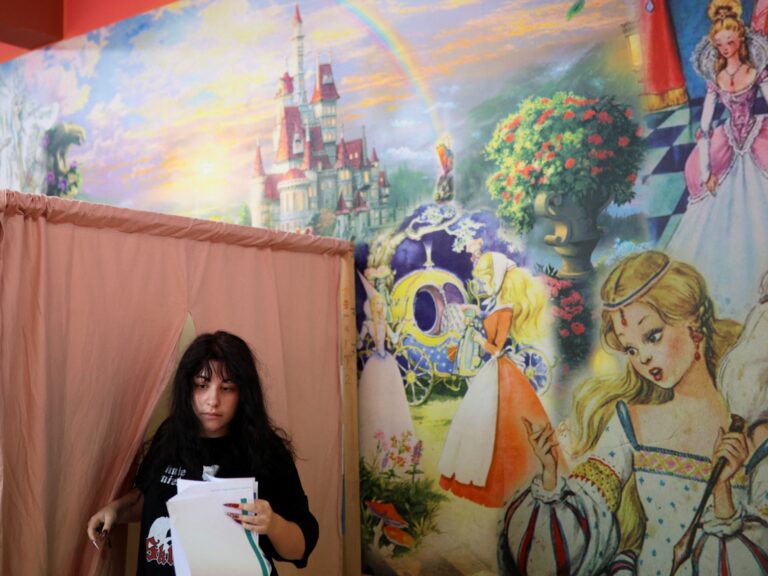Early voting, the sixth in three years, was triggered by the collapse of the ruling coalition in March.
Bulgarians have begun voting in their sixth parliamentary election in three years, but the votes are unlikely to produce a stable government capable of ending long periods of political instability and blocking economic reforms.
Polls open at 7am (4am GMT) on Sunday and close at 8pm (7pm GMT), with exit polls due to be published shortly after polls close. The first partial results are expected around midnight (9pm GMT).
The vote for the 247-seat National Assembly comes amid frequent changes of power since the 2020 anti-corruption protests and the rapid collapse of shaky coalitions in a series of elections.
“The vote is important because Bulgaria has not had a stable government in recent years, with the caretaker government barely able to keep the coalition going, let alone address problems such as the economic and demographic crisis,” Al Jazeera’s Umm-e-Kulthum Sharif said.
Sharif added that one of his biggest concerns was voter turnout, as voters felt a great deal of distrust and fatigue towards the political system. The latest opinion polls suggest no party will win a majority, which would likely lead to new coalition talks once the polls are over.
“I’m voting for a better future,” Antoaneta Hristova, 55, who works in marketing and public relations, told Reuters. “But to be honest, I think there will be more elections – seven in three years. We have been the laughing stock of Europe for a long time,” she said.
“Without a stable government”
Bulgaria needs a period of stable, well-functioning government to accelerate the flow of European Union funding to its ageing infrastructure and push towards adopting the euro and full membership in Europe’s open-border Schengen area.
Plans for euro zone membership have already been postponed twice due to failure to meet inflation targets. Membership is currently scheduled for January 25, 2025.
Failure to form a stable government increases the risk of further delays, Teneo analysts said in a report last week.
Bulgaria has so far received just 1.4 billion euros ($1.5 billion) of the 5.7 billion euros ($6.2 billion) provided by the EU’s Recovery and Resilience Fund (RRF), officials said.
“Further progress is uncertain as politically sensitive reforms need to be implemented in the energy sector and could be even more difficult in the absence of a stable government,” they added.
Sunday’s vote was triggered by the collapse in March of a coalition government between the centre-right Bulgarian Citizens for European Development (GERB) and the reformist We Will Continue the Change (PP) party.
In the latest Gallup poll published by the BTA news agency on Friday, GERB came out on top with 25.9% of the vote, with three parties closely vying for second place.
The PP, a far-right pro-Russian party, and the Rights and Freedoms Movement, which mainly represents Bulgaria’s large Turkish minority, are expected to win 15.7%, 15.5% and 15.3% of the vote respectively.

